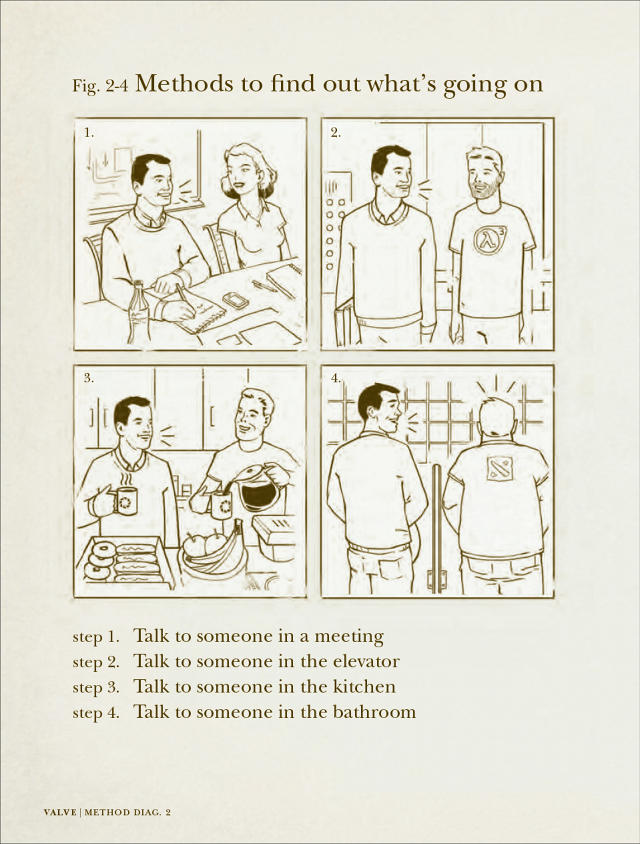How to Create A Handbook Employees Actually Read
Employee handbooks are meant to be helpful, but too often they sit in a desk drawer or computer folder and never see the light of day. If you want to deliver a manual that will be read, consider creating a culture book instead, suggests Jurgen Appelo, author of Managing for Happiness: Games, Tools, and Practices to Motivate Any Team.
“Employee handbooks are usually written by [the human resources department] and contain boring things like vacation day policies and expense policies, and maybe a list of corporate values,” he says. “Culture books are stories of how the organization actually lives those values. Many organizations have bad cultures; Wells Fargo is just one example,” Appelo says. “Culture books can help bring out the best of what might be hidden in organizations.”
Here is Appelo’s five-step process for creating an employee culture book:
- Ask staff for real stories of how people are applying the company’s values, says Appelo. Ask them to talk about the last time they felt great working for the organization.
- Print a big list of team values and let team members and managers pick the core values and wish values based on the stories you’ve collected.
- Compare team members’ and managers’ results. Everyone then agrees on a final set.
- Make the values easy to refer to by keeping them visible. Values are offered as bullet points and accompanied by rules, policies, and legal disclaimers.
- Turn your values and stories into a culture book that’s maintained by employees instead of the HR department.
Several large companies have created engaging employee handbooks that are posted online and can serve as inspiration:
IDEO
A culture book should spell out values, and the design company IDEO creatively displays theirs—which include “be optimistic,” “embrace ambiguity,” and “make others successful”—in the The Little Book of IDEO.
Handbooks and culture books only work when employees actually use them and know what they say, says Appelo, and IDEO’s handbook engages employees right away. It reads:
For a human-centered organization, it of course makes perfect sense that our inner core, the magma at the center of our earth, is our people. Put most simply, IDEO is all about our talent: finding, supporting, keeping, growing, and nurturing them, not to mention, inspiring, supporting and enabling them once they’re inside. That’s you, or hopefully you, if you’re reading this—it’s now official: You are literally the center of our universe.
Valve
The handbook should be created by employees and not the HR department, suggests Appelo. The gaming company let a team of developers create its Handbook for New Employees, which contains illustrations, jokes, and stories, serving as proof that employee handbooks don’t have to be boring.

“This book isn’t about fringe benefits or how to set up your workstation or where to find source code,” the book reads. “Valve works in ways that might seem counterintuitive at first. This handbook is about the choices you’re going to be making and how to think about them. Mainly, it’s about how not to freak out now that you’re here.”
Zappos
Zappos also has a Culture Book written by employees and updated each year. It shares stories of how people feel about the company. It explains:
As we started to grow, we asked ourselves, how can we sustain this culture? How can we remember it while simultaneously inspiring ourselves for the next year? Our answer was the culture book. It’s packed with each employee’s idea about our culture, as well as photos, our core values, and more. We hope that it will inspire you to create a workplace where everyone loves to be.
Netflix
Creating a culture book is a sign that your company is avant-garde and forward thinking in terms of management innovation, says Appelo. Netflix’s employee handbook is a 128-page SlideShare that the company made public in 2009. It includes the company’s hiring and firing process, as well as how they motivate and manage employees.
“Some say, as an example of how a company can create and reinforce a culture with values,” says Appelo, it is the most important document ever to have come out of Silicon Valley.”
Fast Company , Read Full Story
(47)














